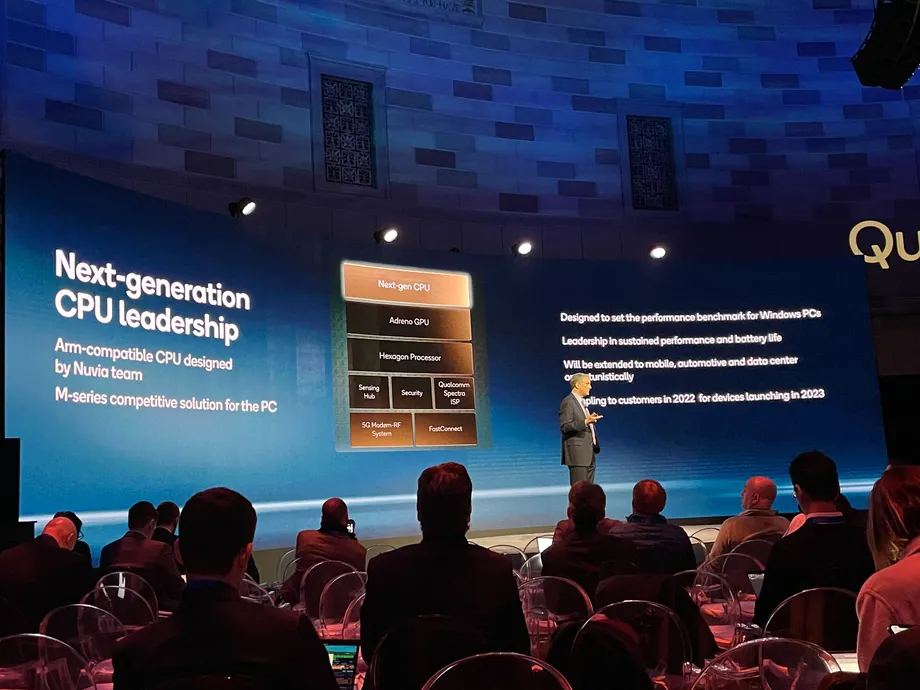Before buyout Nuvia was blabbering about GB5 score of >2000. If they can pull it in 2 years, that will still be quite competitive.
But personally i am a bit sceptical. Apple derives a quite a lot of their performance from tight integration with memory, IO, GPU.
Nuvia was originally designing server CPUs so I would assume they would have been planning to use TSMC's high power process like AMD does, and not their lower power/mobile process like Apple. TSMC's HPC cells and other tweaks can offer anywhere from 10-20% performance increase, so one has to view Nuvia's numbers (which was basically a single graph, I don't think Nuvia ever talked about GB5 scores over 2K other than that) in that context. Keep in mind as well when they shared that they were over a year away from tapeout which is why they couldn't nail down the numbers any more closely than that large splooge zone on the graph.
Perhaps Qualcomm's Nuvia team will design a separate core for HPC cells etc. to use on PC targeted SoCs, but I wouldn't count on it. It really depends on how they want to compete with Intel/AMD in the PC market. Do they market on performance? On power efficiency? On cost? As a new entrant into the PC space, they can't attack it from all sides at once, they have to focus their marketing efforts.
HPC cells are faster but something like 30% less dense thus ~50% more expensive per chip, and that combined with having to design a separate core for the HPC process instead of reusing their mobile core like Apple makes the decision for them IMHO. There's also a lot of Windows stuff that's x86 only and will require translation (and they can't get anywhere near Rosetta 2 numbers) which is another checkbox in favor of not trying to compete on raw performance at this time, instead choosing the mobile process as Apple did to compete more on efficiency and cost. If they are successful in breaking into the Windows PC market, that will cause more applications to be ported to ARM and then it would make more sense as a market proven player to do a separate design targeted at the HPC process to go at the competition's high ASP stuff.





